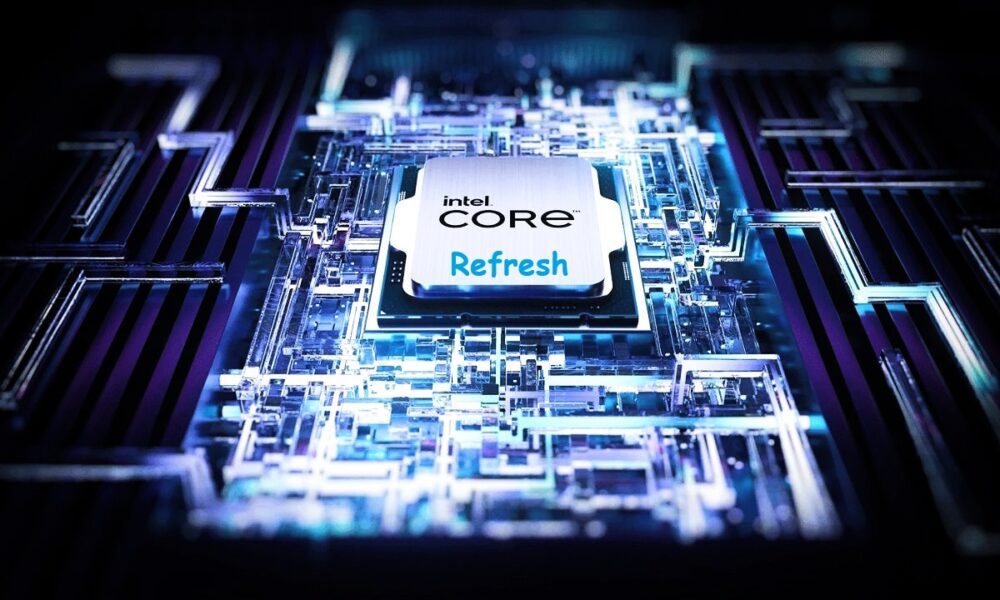The chip giant presented a total of 18 new processors at CES 2024 Intel Core Gen 14 that they are located inside non-K series. This is characterized by the fact that the multiplier is locked and operates at lower operating frequencies, but the number of cores and threads is usually unchanged compared to the K models.
The non-K-series Intel Core Gen 14s are slightly less powerful than their K-series equivalents, but this has its advantages in that they heat up less, use less power, and are also usually more economical. This range is usually a good choice for those who want to ride Powerful computers at a reasonable price, and also for users who need affordable configurations but don’t want to give up a good level of performance.

We must differentiate within this generation three different models:
- “F” range, which means the processor comes with the integrated GPU disabled.
- The “T” range, which indicates a lower TDP (35 watts) and therefore a lower frequency.
- The standard series that has no letter attached to it and means that it has a TDP of 65 watts and that it has a working integrated GPU.
All Intel Core Gen 14 processors without K They are compatible with current LGA1700 motherboards equipped with 600 and 700 series chipsets and therefore support the latest industry standards, including PCIe Gen5 and DDR5 memory. We are facing an update to the Intel Core Gen 13 non-K series, which means that the changes at the performance level are small, although there is one exception, the Intel Core i7-14700, which is configured with four more E cores than the previous generation model.

Non-K series Intel Core Gen 14 performance
If we look at the graphics that Intel shared, we immediately realize that, as I told you in the previous paragraph, the performance improvement compared to the previous generation is small. At best, Intel Core i9-14900 improves performance by 7% compared to the Intel Core i9-13900 and in the worst case the improvement is only 2%.

In the comparison image with the AMD Ryzen 9 7900, we see that the Intel Core i7-14700 loses in the UL Procyon Office Benchmark, but wins in all other tests. preferably between 2% and 30%, depending on the test used and its scaling with multithreading.

A look at the 18 new processors that Intel introduced
The list of new models introduced by Intel is very extensive and you can find it compiled in the attached images, which can be enlarged by clicking. The Intel Core i9-14900 is the top of the line 8 P cores and 16 E cores it runs at a maximum of 5.6 GHz and 4.3 GHz. His price will be 549 dollarswhich at the exchange rate and after applying VAT should become approximately 559 euros.

Below we have the Intel Core i7-14700, which has 8 P cores and 12 E cores running at a maximum of 5.4 GHz and 4.2 GHz. Its price will be 384 dollars, which should be 399 euros including VAT. A step down are the Core i5-14600 and 14500, both with configurations 6 P cores and 8 E cores and with a price 255 and 232 dollars in Spain it should be 260 and 240 euros.

A priori, it seems that the differences between them are minimal, but The Intel Core i5-14600 has a larger amount of L2 cache memory, so it will outperform the Intel Core i5-14500 in cache-sensitive applications like games. So it is a better choice if our goal is to play.

The Intel Core i5-14400 has 6 P cores and 4 E cores running at a maximum of 4.7 GHz and 3.5 GHz and the price 221 dollars, which should become 230 euros with VAT. In the low end, we conclude the Intel Core i3-14100, which has four cores and eight threads at a maximum of 4.7 GHz for the price 134 dollarsand the Intel N300, which has two P cores and four threads at 3.9 GHz with a price in the amount of 82 dollars. The pictures also show the T and F versions, which I already explained to you at the beginning of this article.






















